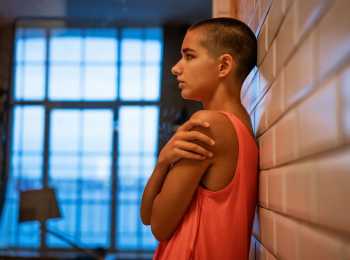Fertility after cancer - for females
The first thing to do is work out whether you had any fertility-preserving interventions – like egg and embryo collection and freezing – before you had treatment. If you were quite young when you had cancer and you don’t remember, ask your parents or doctor.
If you did undergo fertility preservation, then your parents or doctor will know where your eggs or tissues are being stored and will be able to put you in contact with the right people. They will then be able to outline what steps you will need to take in order to have a baby.
What if I didn’t have any form of fertility preservation?
If you didn’t undergo any preservation techniques, then your first step should be to go to a fertility testing clinic and find out whether you will be able to have a baby naturally, or whether you may need some help.
For information on places where you can have your fertility tested, ask your YCS team.
If you did have some fertility preservation
What you do now depends on the type of preservation intervention you had before treatment, and whether you want to try to have a baby soon or later.
-
Egg and embryo collection and freezing
Once you finish treatment you can think about what you might like to do with your eggs or your stored embryos.
Having children may be a long way down the track though, so you might decide not to worry about it now and just think about it when the time comes.
-
Ovarian tissue freezing
Once you have finished treatment you can have the ovarian slices returned to your body, or they can remain frozen until you decide to have children.
-
Ovarian transposition
Once treatment is completed the ovaries are surgically returned as close to their normal position as possible.
-
Use of GnRH analogues
Once you have finished treatment you will generally stop the injections and hopefully within time your ovaries will start functioning again.
Need more information?
Check out our recommended booklet for more detailed information about fertility and fertility preservation options for young people after cancer.
Fertility after cancer - for males
You may find that you return to your normal reproductive state within a couple of months of finishing treatment. To be on the safe side though, if you are going to have sex, always use contraception (to prevent both pregnancy and sexually transmitted infections) and undergo testing so your fertility status is known.
The first thing to do is work out whether you had any fertility-preserving interventions – like sperm freezing or testicular tissue freezing – before you had treatment. If you were quite young when you had cancer and you don’t remember, ask your parents or doctor.
If you did undergo fertility preservation, then your parents or doctor will know where your sperm or tissues are being stored and will be able to put you in contact with the right people.
What if I didn’t have any form of fertility preservation?
If you didn’t undergo any preservation techniques, then your first step should be to go to a fertility testing clinic and find out whether you will be create a baby naturally, or whether you may need some help.
For information on places where you can have your fertility tested, ask your YCS team.
Fertility testing
It is really hard to tell whether your treatment has had an impact on your fertility because you may be able to produce semen, but you will need to have it tested to determine the number and quality of sperm in the semen.
You will undergo some tests (yes – more tests) to determine what your fertility status is. If you are anxious and keen to go to a testing centre immediately after treatment, you may be told to wait a while till your body settles back down to a more normal rhythm. This is so the tests can be more accurate.
A semen analysis is the most common test for men to undergo to determine their fertility status. It measures the amount of semen you produce and determines the number and quality of sperm in the sample.
In order to undertake a semen analysis you will need to provide a sample. In order to do this you will need to go to a clinic or fertility centre.
You will be told step-by-step what to do by the staff there, and given as much time as you need. To give you some idea of what will happen, you will be required to masturbate (you may know this as ‘wanking’, ‘jerking off’ or ‘jacking off’) and ejaculate samples of your sperm for collection into a jar. Your sample will then be taken into the lab for testing.
If you have no sperm in your ejaculate, then your doctor may also want to consider a testicular biopsy to determine if there are any sperm that are viable remaining in the testicular tissue.
If there are no problems then you should be able to conceive ‘naturally’ (through unprotected sex).
Need more information?
Check out our recommended booklet for more detailed information about fertility and fertility preservation options for young people after cancer.
















